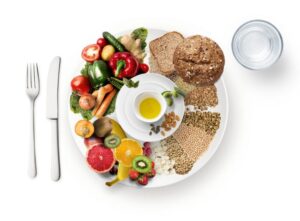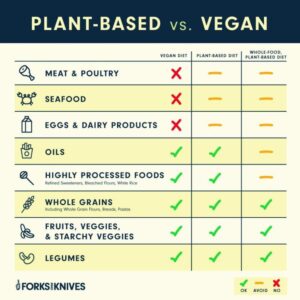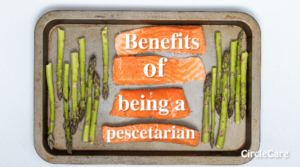Lacto ovo vegetarian vs vegetarian – Embark on a culinary and ethical exploration as we delve into the fascinating world of lacto-ovo vegetarians and vegetarians. Discover the nuances that set these dietary choices apart, from their nutritional profiles to their environmental and ethical implications. Join us on this journey of mindful eating and informed decision-making.
Lacto-ovo vegetarians, who consume dairy and eggs but abstain from meat, poultry, and fish, stand in contrast to vegetarians who exclude all animal products from their plates. This distinction forms the cornerstone of our comparison, as we unravel the dietary sources, health benefits, and ethical considerations that shape these two vegetarian lifestyles.
Definition of Lacto-Ovo Vegetarian vs Vegetarian
Vegetarianism is a type of diet that excludes meat, poultry, fish, and seafood. Lacto-ovo vegetarians are a type of vegetarian who also eat dairy products and eggs. This means that lacto-ovo vegetarians eat a wider range of foods than vegans, who exclude all animal products.
The following table compares the diets of lacto-ovo vegetarians and vegetarians:
| Diet | Includes | Excludes |
|---|---|---|
| Lacto-ovo vegetarian | Dairy products, eggs, fruits, vegetables, grains, legumes, nuts, and seeds | Meat, poultry, fish, seafood, and vegan products |
| Vegetarian | Fruits, vegetables, grains, legumes, nuts, and seeds | Meat, poultry, fish, seafood, dairy products, eggs, and vegan products |
Dietary Sources of Nutrients: Lacto Ovo Vegetarian Vs Vegetarian
Both lacto-ovo vegetarians and vegetarians can obtain essential nutrients through their diets, but the sources vary depending on their dietary restrictions. Let’s explore the key food groups that provide protein, calcium, iron, and vitamin B12 for each group:
Protein
- Lacto-ovo vegetarians:Dairy products (milk, cheese, yogurt), eggs, beans, lentils, tofu, tempeh, nuts, and seeds
- Vegetarians:Beans, lentils, tofu, tempeh, nuts, seeds, and whole grains
Calcium
- Lacto-ovo vegetarians:Dairy products (milk, cheese, yogurt), fortified plant-based milks, leafy green vegetables (kale, spinach), fortified cereals
- Vegetarians:Fortified plant-based milks, leafy green vegetables (kale, spinach), fortified cereals, tofu
Iron
- Lacto-ovo vegetarians:Eggs, beans, lentils, tofu, tempeh, fortified cereals, leafy green vegetables (kale, spinach)
- Vegetarians:Beans, lentils, tofu, tempeh, fortified cereals, leafy green vegetables (kale, spinach), dried fruits (raisins, apricots)
Vitamin B12
- Lacto-ovo vegetarians:Eggs, dairy products (milk, cheese, yogurt)
- Vegetarians:Fortified plant-based milks, nutritional yeast, fortified cereals
Health Benefits and Risks
Lacto-ovo vegetarian and vegetarian diets offer various health benefits, but also pose potential risks and nutrient deficiencies. Understanding these factors is crucial for making informed dietary choices.
Embracing a pescatarian lifestyle, which involves consuming fish and seafood while abstaining from other meat products, offers a myriad of pescatarian benefits . Fish and seafood are rich in omega-3 fatty acids, essential nutrients known for their heart-protective and anti-inflammatory properties.
They also provide high-quality protein, vitamins, and minerals, contributing to overall well-being.
Heart Health
Both lacto-ovo vegetarian and vegetarian diets have been linked to a reduced risk of heart disease. These diets are typically low in saturated fat and cholesterol, which can contribute to the buildup of plaque in arteries. They are also rich in fiber, which can help lower blood pressure and cholesterol levels.
Cancer Risk
Research suggests that lacto-ovo vegetarian and vegetarian diets may be associated with a lower risk of certain types of cancer, such as colon, breast, and prostate cancer. These diets are high in antioxidants, phytochemicals, and fiber, which may protect cells from damage and reduce inflammation.
Embracing a pescatarian lifestyle offers numerous health benefits. Pescatarian benefits include a reduced risk of heart disease, stroke, and certain types of cancer. The consumption of fish, rich in omega-3 fatty acids, promotes brain health, reduces inflammation, and supports overall well-being.
Nutrient Deficiencies
While these diets offer many health benefits, they may also pose certain nutrient deficiencies. Lacto-ovo vegetarians may be at risk for vitamin B12 deficiency, as this vitamin is primarily found in animal products. Vegetarians, who consume no animal products, may be at risk for deficiencies in vitamin B12, iron, calcium, and vitamin D.
It is essential to ensure adequate intake of these nutrients through fortified foods, supplements, or a varied diet that includes plant-based sources rich in these nutrients.
Environmental Impact
Dietary choices have a significant impact on the environment. Lacto-ovo vegetarian and vegetarian diets are generally considered more environmentally friendly than omnivorous diets.
Livestock production is a major contributor to greenhouse gas emissions, land use, and water consumption. By reducing or eliminating meat consumption, lacto-ovo vegetarians and vegetarians can help reduce their environmental footprint.
Greenhouse Gas Emissions
- Livestock production is responsible for about 14.5% of global greenhouse gas emissions, primarily due to methane and nitrous oxide emissions.
- Lacto-ovo vegetarian diets produce about 20-30% lower greenhouse gas emissions than omnivorous diets.
- Vegetarian diets produce about 50-60% lower greenhouse gas emissions than omnivorous diets.
Land Use
- Livestock grazing and feed production require vast amounts of land.
- Lacto-ovo vegetarian diets require about 25% less land than omnivorous diets.
- Vegetarian diets require about 50% less land than omnivorous diets.
Water Consumption, Lacto ovo vegetarian vs vegetarian
- Livestock production is a major consumer of water.
- Lacto-ovo vegetarian diets require about 15% less water than omnivorous diets.
- Vegetarian diets require about 30% less water than omnivorous diets.
Ethical Considerations
The ethical implications of lacto-ovo vegetarian and vegetarian diets stem from the use of animal products in the human diet. These diets raise questions about animal welfare, the sustainability of animal agriculture, and the moral implications of consuming animal products.
Animal Welfare Concerns
One of the primary ethical concerns with consuming animal products is the treatment of animals in factory farms. Animals raised for food are often subjected to intensive confinement, poor living conditions, and painful procedures such as beak trimming and tail docking.
Lacto-ovo vegetarian diets reduce the demand for meat, which can contribute to improved animal welfare standards.
Sustainability of Animal Agriculture
Animal agriculture has a significant environmental impact. The production of meat, eggs, and dairy requires vast amounts of land, water, and energy. It also contributes to greenhouse gas emissions, water pollution, and deforestation. Lacto-ovo vegetarian and vegetarian diets reduce the environmental impact associated with animal agriculture.
Arguments Against Consuming Animal Products
Opponents of consuming animal products argue that it is morally wrong to exploit and kill animals for food. They believe that animals have the capacity to suffer and experience emotions, and that it is unethical to cause them harm for human consumption.
Arguments for Consuming Animal Products
Proponents of consuming animal products argue that it is necessary for human health and nutrition. They maintain that animal products are a good source of essential nutrients such as protein, vitamin B12, and iron. They also argue that moderate consumption of animal products can be sustainable if animals are raised in humane and environmentally responsible ways.
Final Summary
In the realm of vegetarianism, lacto-ovo vegetarians and vegetarians each tread their unique paths, guided by distinct dietary choices. While both diets offer potential health benefits, they also present unique considerations regarding nutrient intake and ethical implications. As we conclude our exploration, we encourage you to reflect on the information presented and make informed decisions that align with your values and dietary needs.
General Inquiries
What are the key differences between lacto-ovo vegetarians and vegetarians?
Lacto-ovo vegetarians consume dairy and eggs, while vegetarians exclude all animal products from their diet.
Which diet provides a better source of protein?
Both diets can provide adequate protein intake, with lacto-ovo vegetarians having access to a wider range of protein sources including dairy and eggs.
Are there any health risks associated with vegetarian diets?
Vegetarian diets can be nutritionally adequate, but it’s important to ensure sufficient intake of essential nutrients such as vitamin B12, iron, and calcium.
What are the ethical considerations of vegetarianism?
Vegetarianism raises ethical concerns about animal welfare and the environmental impact of animal agriculture.




Leave a Comment